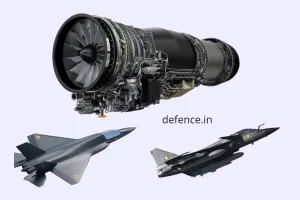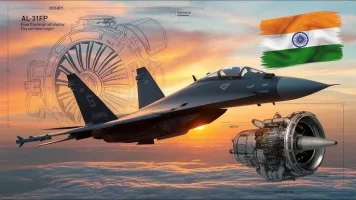- Views: 2K
- Replies: 27

Turkish defence analysts have expressed strong criticism of the United States, accusing it of hypocrisy in its defence policies. This criticism stems from reports that the U.S. has offered India the F-35A Lightning II stealth fighter jet despite India's possession of the Russian S-400 air defence system.
This offer starkly contrasts with the treatment of Turkey, a NATO ally, which was expelled from the F-35 program and sanctioned under the Countering America's Adversaries Through Sanctions Act (CAATSA) for purchasing the same Russian system. Turkish analysts argue that this inconsistency reveals a double standard in U.S. foreign policy, raising concerns about fairness and strategic coherence.
At the heart of this controversy lies the S-400 Triumf, a sophisticated Russian air defence system. The U.S. has long opposed the system's proliferation, fearing its potential to compromise NATO security and gather intelligence on Western military technology, especially the F-35.
Turkey's acquisition of the S-400 in 2017 led to its expulsion from the F-35 program, in which it was a significant participant, and the imposition of CAATSA sanctions in 2020. The U.S. argued that the S-400's radar system could collect sensitive data on the F-35's stealth capabilities, jeopardizing NATO's technological edge.
In contrast, India signed a deal with Russia for five S-400 systems in 2018, with deliveries commencing in 2021. Despite initial threats, the U.S. has not imposed any CAATSA sanctions on India.
Furthermore, recent reports suggest that the U.S. is considering offering India the F-35A through a government-to-government deal. This apparent disparity in treatment has fueled accusations of U.S. hypocrisy from Turkish defence analysts. They argue that if the S-400 poses a security risk, it should be treated as such regardless of the country acquiring it.
However, while the Turkish analysts' concerns highlight a seemingly inconsistent approach, several key differences between India and Turkey's geopolitical situations explain the divergent treatment by the U.S.
NATO Membership and Strategic Priorities
Turkey, as a NATO member, is bound by alliance commitments and interoperability requirements. Its acquisition of the S-400 was seen as a breach of trust and a potential threat to NATO's integrated defence architecture.India, on the other hand, is not a NATO member and maintains a non-aligned foreign policy. Its defence decisions do not directly impact NATO's security, allowing the U.S. greater flexibility in its response.
Moreover, the U.S. views India as a crucial partner in its Indo-Pacific strategy to counter China's growing influence. This strategic importance grants India greater leverage compared to Turkey, whose relationship with the U.S. has been strained by various geopolitical disagreements.
Historical Defence Ties and CAATSA Application
India has a long-standing defence relationship with Russia, which remains its primary arms supplier. The S-400 purchase is a continuation of this historical pattern.The U.S. acknowledges this reality and seeks to gradually diversify India's defence procurement rather than impose sanctions that could push India further towards Russia.
Furthermore, India's S-400 deal predates the full implementation of CAATSA, providing a degree of legal insulation. Turkey, however, finalized its S-400 deal after CAATSA came into effect, making its actions appear more defiant.
Economic and Strategic Leverage
India's economic strength and its position as a major military power in the Indo-Pacific region give it significant leverage in negotiations with the U.S. The potential economic benefits of defence deals with India, coupled with its strategic importance, incentivize the U.S. to overlook the S-400 issue.While Turkey remains a valuable NATO ally, its economic and strategic weight is less significant compared to India, particularly in the Indo-Pacific context.
In conclusion, while Turkish analysts' accusations of U.S. hypocrisy are understandable, they oversimplify a complex geopolitical reality. The U.S. decision to offer the F-35 to India despite its S-400 acquisition is driven by strategic considerations, India's non-NATO status, its historical ties with Russia, and its growing economic and military influence.
While the optics may appear unfair, U.S. foreign policy is ultimately guided by pragmatic national interests and the evolving dynamics of the global security landscape.



